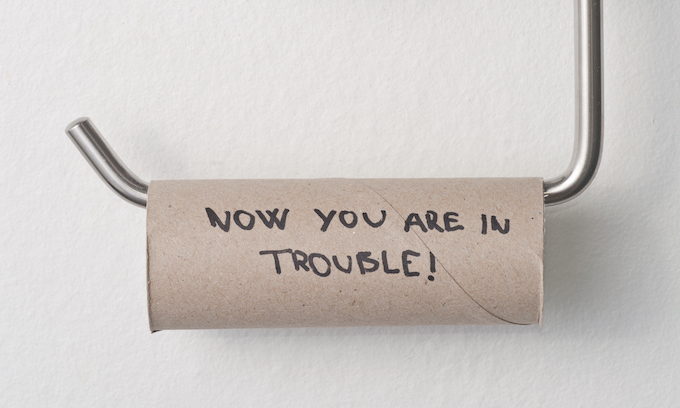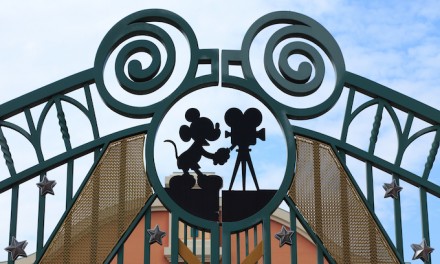We know that San Francisco has been the open defecation capital of the U.S. for more than a decade.
This once-fine city has been ruined by the misgovernance of the Democrats. In other words, all progress has been ruined by ‘progressive’ politics.
One of the solutions to this crisis which causes the surroundings to be unhygienic and unsafe for walking is to build public toilets that are freely accessible.
This is exactly what the powers that be in San Francisco set forth to do.
The first step of any project is to perform a feasibility study to deduce the cost versus the benefits. In this particular case, the benefits are already known, and hence the focus was on the estimates of cost.
The San Francisco Chronicle reported that the proposed budget for one solitary toilet, i.e., just one commode in 150 square feet of space was estimated to be roughly $1.7 million.
That wasn’t the only bad news.
This expensive toilet would be ready for use only in 2025.
So why is this toilet so ridiculously expensive, and why does it take so long to build?
A joint statement from the Recreaction and Parks Department and the Department of Public Works revealed the reasons behind this expense.
First, that San Francisco is the most expensive city in the world for any construction.
Bidenflation is also a leading cause.
The already-high construction costs have increased by around 30% in the past couple of years, due to the rise in costs of fuel, labor, and materials.
But most of all there are ‘process-related’ expenditures.
The statement from Rec and Park and Public Works revealed that like all public projects, the overall cost estimates don’t just reflect the price of building structures, but also the costs related to planning, drawing, permits, reviews, and even public outreach.
The cycle is as follows:
An architect draws plans for the toilet.
The city shares these plans for the toilet with the community for feedback.
Simultaneously the plans are subjected to a review from the Arts Commission’s Civic Design committee comprising two architects, a landscape architect, and two other design professionals who, under the city charter, “conduct a multi-phase review” of all city projects on public land — ranging from buildings to bathrooms to historic plaques, fences, and lamps.
The project then heads to the Recreation and Parks Commission and to the Board of Supervisors.
There will also be a review under the California Environmental Quality Act.
Then, the city will put the project up for bid.
But none of these satisfactorily explained the $1.7 million for just one toilet when experts say the highest estimate for the toilet would be not more than $200,000.
The news caused outrage not just in San Francisco, but across the U.S.
The controversy was so intense that California Gov. Gavin Newsom, himself a proponent of big government spending, placed the state funds earmarked for the public restroom on hold.
Most of the above occurred in October 2022.
The best headline about this controversy was from the U.K. Guardian which read: “Loo-dicrous: San Franciscans flushed with anger over $1.7m public toilet.”
By November 2022, Chad Kaufman, president of Public Restroom Company based in Nevada said his firm could donate a pre-fabricated building, including the toilet, the enclosure, a locking door, and a sink which would normally sell for $135,000.
Kaufman said the city must have a local labor union to install it and waive all the usual bureaucratic red tape.
He also said the toilet could be up and working in three days.
You would think the authorities would accept this before taking the next breath.
But there is a problem.
Nevada is on San Francisco’s list of states the city won’t do business with because of that state’s alleged stance on abortion, LGBTQ+ issues, and voting rights.
But accepting a gift isn’t actually doing business.
Hence, a few week ago, by the end of January 2023, the toilet and the building, along with a sink were installed.
But all of the $1.7 million is not going to be saved.
The Recreation and Parks Department has spent $300,000 on other costs like landscaping design, permits, and environmental reviews.
This episode highlights the role of the media in a democracy.
At the risk of stating the obvious, the job of the news media is to be watchdogs on behalf of the tax-paying public and keep them informed of all the excesses, abnormalities, and corruption occurring.
The San Francisco officials took remedial action not because it suddenly dawned upon them that they have to be fiscally responsible. It was because of the copious public outrage after the San Francisco Chronicle broke the story and several others carried it.
This toilet is merely an example of how the government functions.
The amount required to install the toilet was not more than $200,000, which is roughly one eighth of the $1.7 million projected. The rest is dedicated to processing, for which consultants and advisors are appointed, and most of these are probably cronies of government officials, obviously. Contracts and tenders are granted with implicit quid pro quo understandings.
This is exactly what is happening in D.C.
Some $111 billion of taxpayer money has been pledged for Ukraine and Biden recently announced $500 million more in aid to Ukraine.
It is likely that a small percentage of the amount in the form of arms and aid pledged actually lands in Ukraine. Once again, there must be legal and implicit quid pro quo agreements for those approving of these funds. This explains why there is such a consensus between parties on dispatching them.
Last December, Sen. Rand Paul released his “Festivus” report, which details wasteful government spending in 2022. Among the craziest items was $2.3 million dedicated for studying beagle puppies when injected with cocaine. The most scandalous was $77 million was wasted on un-tracked fuel purchases.
Regrettably, unlike in San Francisco, the mainstream news media isn’t investigating or reporting on government excess; they are instead focused on doing P.R. work for the Democrats. So there will be very public little outrage, which means this waste will continue.
The $1.7 million toilet in San Francisco is being called proof of the fiscal irresponsibility of the government and how bureaucracy and regulation cloud common sense.
That claim is partially true.
The chief cause for these bloated budgets and estimates is corruption. The money isn’t wasted, it actually ends up in the pockets of cronies and eventually into the pockets of politicians and bureaucrats with authority to approve.
Make no mistake, this $1.7 million toilet isn’t an anomaly, but a norm.
The real anomaly is that this instance of government excess was reported by the media and the powers that be reacted to the public backlash.
It proves that democracy is still alive in the U.S., albeit not as strong and ubiquitous as it used to be.
© Copyright © 2023 American Thinker, All rights reserved.
—-
This content is published through a licensing agreement with Acquire Media using its NewsEdge technology.



















I have no sympathy for the liberal communists who voted for these communist politicians. California is a cesspool of toxic metastatic cancer. Oh, I am a liberal voter and I will vote for “metastatic cancer” that will kill me. “Stupid is as stupid does”; “Forest Gump”!!!!!!!!!!
neither do i..
Since the socialist, / communist, democrat party has managed to get one of their own party, President Joe Biden, put in office, the whole country is in the toilet.
“We know that San Francisco has been the open defecation capital of the U.S. for more than a decade.
This once-fine city has been ruined by the misgovernance of the Democrats. “
The $1.7 million toilet in San Francisco is being called proof of the fiscal irresponsibility of the government and how bureaucracy and regulation cloud common sense.
The chief cause for these bloated budgets and estimates is corruption. The money isn’t wasted, it actually ends up in the pockets of cronies and eventually into the pockets of politicians and bureaucrats with authority to approve.
To Democrats – their truth and facts are just a matter of their own opinions.
The Democrat Party wins most of their followers because they are ill-informed and/or low intellect.
Democrat’s propaganda or narrative works on an emotional level, not on the intellect level. The Democrat Party supporters are mentally subjective, how they Want Facts, Truth and reality to be.
Not Objective, how Facts, Truth and reality are. Subjective fools believe their own lies.
Scruffy_USN_Retired on February 25, 2023 “We know that San Francisco has been the open defecation capital of the U.S. for more than a decade…”
“…This once-fine city has been ruined by the misgovernance of the Democrats. “
” Even a blind squirrel finds an Acorn once in a while.”
author of quote unknown.
America was founded on Christian beliefs and the educational indoctration centers and democrat party elite LEFTISTS, have turned their backs on Christian values.
In the book by Mark LEVIN, ” American Marxism, ”Dewey argued, as Marx had that the nation’s youth must be freed from existing morals values belief systems traditional customs and the like through public education…”
Sounds exactly like something that the perverts in San Fairycisco would come up with. Not only can the fruitcakes not figure out which bathroom to use, they can’t even get a bathroom built in the first place!
As El Rushbo used to say, “Follow the money trail.”
Looks like the money trail to this San Fran biffy was a long, lucrative one indeed.
True that. JUST LOOK At the laundry list of contractors and govt officials who had to sign off..
ltuser on February 25, 2023
” True that. JUST LOOK At the laundry list of contractors and govt officials who had to sign off..”
Machine politics is alive and well, that’s the reason so many politicians are in office today.
They can build whatever they want if they can find somebody smart enough to do it but no way would I enter a public restroom in San Francisco. If you think their streets are dirty just wait till you see their public toilets.
Yep. SF was once my favorite US city. Not any more. I have NO plans on ever going back to that place.
WHY find a toilet. THE ENTIRE city is one.
This story can absolutely stand on its own merit an the shining example of modern-day bureaucracy and willful human stupidity. It is a shame that a country like ours has to acknowledge such idiocy and inexcusable ignorance.
Son Of Thunder February 25, 2023
” This story can absolutely stand on its own merit an the shining example of modern-day bureaucracy and willful human stupidity.”
The Socialist, / Democrat party of America says, ‘ You will obey, Comrade! ‘
It will never work even when built. The people of San Francisco are obviously not toilet trained